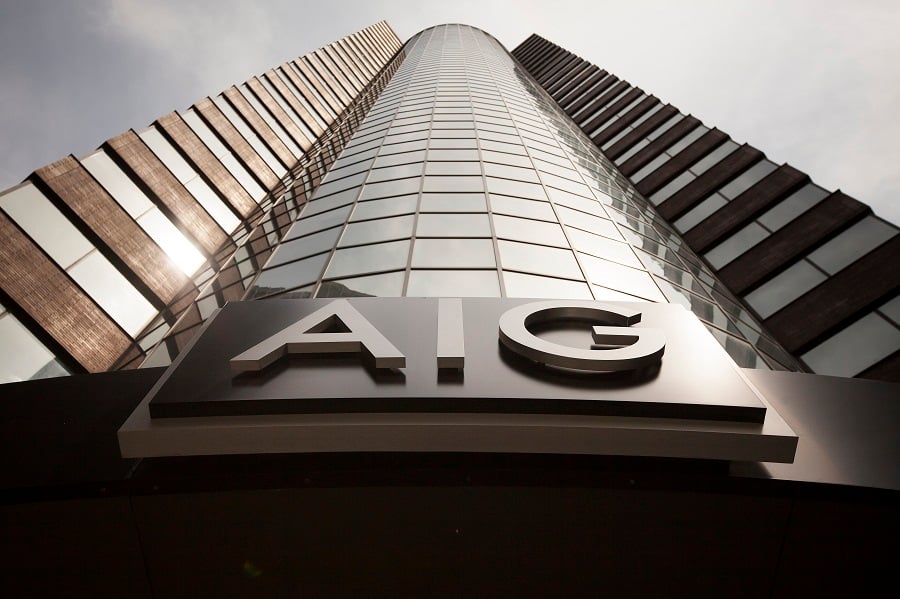

American International Group Inc. filed for an IPO of its life and retirement arm, one of the final steps in a years-long effort to simplify the sprawling insurer.
The business will be renamed Corebridge Financial Inc. once the initial public offering is complete, AIG said in a filing Monday. The insurer called the business “one of the largest providers of retirement solutions and insurance products” in the U.S., with $411 billion in client assets under management as of the end of last year.
“Today’s announcement represents continued progress as we prepare our life and retirement business to be a standalone company,” AIG Chief Executive Peter Zaffino said in a statement.
The company also announced new directors on Corebridge’s board, which already included Blackstone Inc. President Jonathan Gray and Zaffino, who serves as chairman of the unit.
Zaffino and his predecessor, Brian Duperreault, have spent several years overhauling AIG. Efforts to execute on part of the insurer’s agenda by splitting off the life and retirement business have ramped up in recent months.
Earlier Monday, AIG announced an agreement with BlackRock Inc. that would see the investment manager handle as much as $150 billion of the insurer’s assets.
Prior to the agreement with BlackRock, AIG sold a 9.9% equity stake in its life and retirement business to private equity firm Blackstone for $2.2 billion in cash. That pact created a “long-term strategic asset management relationship” for an initial $50 billion from the insurer’s life and retirement portfolio, expected to grow to $92.5 billion within six years.
The size and price of the Corebridge share sale are yet to be determined, according to the filing, which indicated the business had total equity of $28.9 billion as of the end of 2021. That represents its book value, or how much it would be worth in a liquidation. AIG will be the selling shareholder in the listing, according to the filing.
The business generated net income of $7.4 billion on revenue of $23 billion in 2021, showing substantial increases from net income of $642 million on revenue of $15 billion on a pro forma basis a year earlier, according to the filing. About half the unit’s revenue came from investments last year, with about $8.7 billion of the total from premiums and policy fees, the company said in its filing.
Corebridge plans to list its shares on the New York Stock Exchange under the symbol CRBG. JPMorgan Chase & Co., Morgan Stanley and Piper Sandler are leading the share sale.
Corebridge’s filing could signal a return of IPOs. Activity in that market has been muted since January amid high volatility, inflation concerns and Russia’s invasion of Ukraine. Following a string of follow-on offerings and block trades, new listings are set to make a comeback in the next few months, dealmakers have said.
After a record-breaking 2021, IPOs on U.S. exchanges are having the worst quarter since 2016. Only 33 companies, not including blank-check firms, have raised a total of $2.75 billion in listings since Jan. 1, according to data compiled by Bloomberg. Private Equity firm accounted for $1.1 billion of that total with its January offering.
In the first three months of 2021, by comparison, 150 companies raised more than $56 billion in IPOs in the U.S., the data show.

Looking to refine your strategy for investing in stocks in the US market? Discover expert insights, key trends, and risk management techniques to maximize your returns

The RIA led by Merrill Lynch veteran John Thiel is helping its advisors take part in the growing trend toward fee-based annuities.

Driven by robust transaction activity amid market turbulence and increased focus on billion-dollar plus targets, Echelon Partners expects another all-time high in 2025.

The looming threat of federal funding cuts to state and local governments has lawmakers weighing a levy that was phased out in 1981.

The fintech firms' new tools and integrations address pain points in overseeing investment lineups, account monitoring, and more.
RIAs face rising regulatory pressure in 2025. Forward-looking firms are responding with embedded technology, not more paperwork.
As inheritances are set to reshape client portfolios and next-gen heirs demand digital-first experiences, firms are retooling their wealth tech stacks and succession models in real time.
